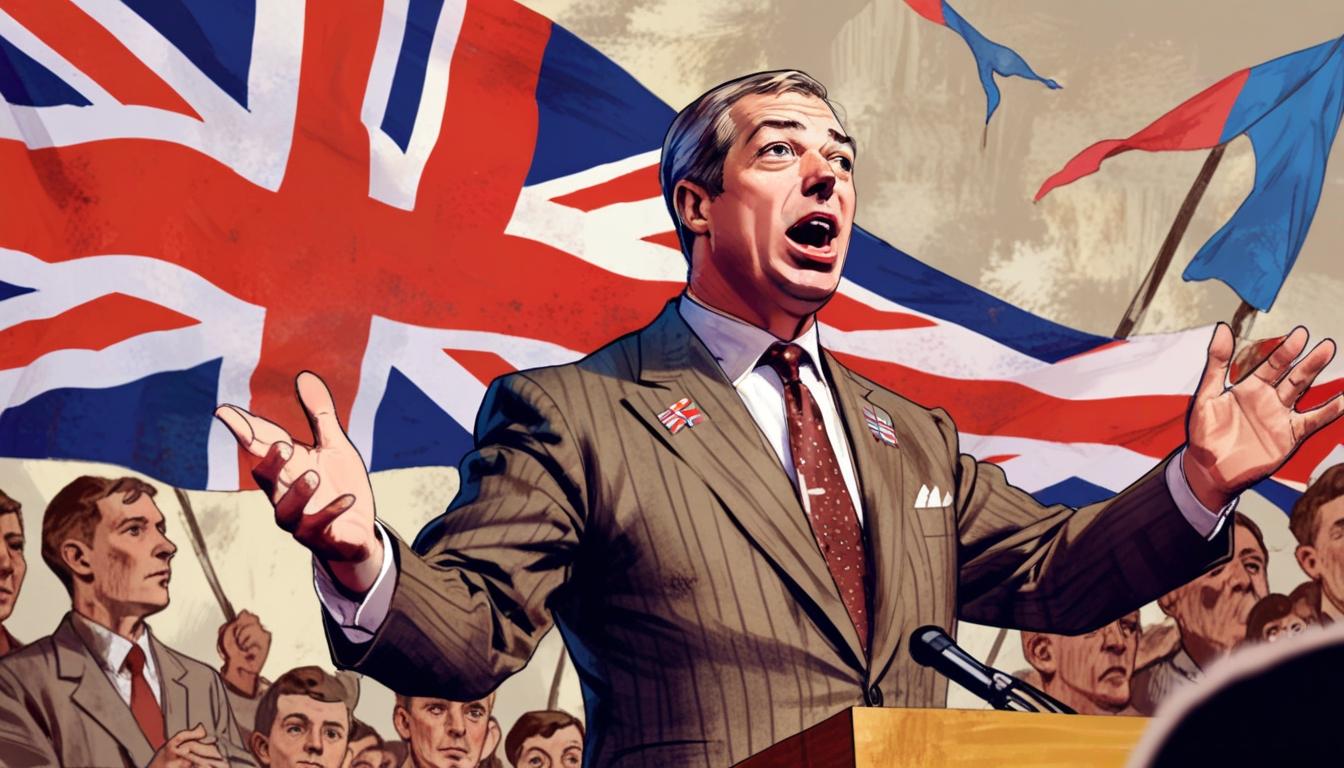Nigel Farage has voiced urgent demands for an immediate halt to immigration, citing what he describes as "cultural damage" and the disintegration of British communities. At a VE Day event, he expressed profound concerns over the impact of rising immigration trends on national identity and social cohesion. According to Farage, the UK has welcomed around 10 million new residents over the past two decades, many of whom "do not share our values." He asserts that this influx is "devaluing" British society and eroding essential principles such as duty, family, community, and patriotism, which he believes are vital to the nation’s character.
Amidst growing public unease about immigration, particularly as record numbers attempt to cross the English Channel for asylum, Farage highlighted that more than 11,500 individuals have made this dangerous journey just this year. He argues that this situation is overstretching public services and fueling rising disillusionment among voters. His declaration, "We are becoming a little bit less British every day," encapsulates his concern that traditional values are being lost in a modern multicultural landscape that does not reflect the will of the people.
The demand for a radical shift in immigration policy aligns with a broader narrative that has gained momentum in recent years. With net migration surging to an alarming 606,000 over the past year—nearly triple the pre-Brexit average—Farage has condemned the government's management of migration as a "total breach of trust." While Prime Minister Rishi Sunak has recognised these figures as "too high" and has promised to tackle the issue, many, including Farage, remain highly sceptical of the government's intentions and efficacy.
In a recently unveiled manifesto presented as a 'contract' with the British public, Farage laid out plans to freeze what he considers "non-essential" immigration. He highlights how challenges like NHS waiting lists and housing shortages are exacerbated by high migration levels, placing direct blame on the current administration's failed policies. Furthermore, he has been scathing about Labour's approach to migration, accusing the party of rehashing ineffective solutions that may jeopardise the UK's autonomy by bringing it back under EU oversight.
Farage's rhetoric resonates with significant segments of the electorate who feel abandoned by mainstream parties on immigration. His focus on cultural identity and traditional values aligns with a rising narrative among voters who associate high levels of immigration with diminished quality of life and community integrity. As he aims to establish his party as a formidable force in future elections, Farage's immigration stance is likely to remain a cornerstone of his political strategy, especially given the recent electoral outcome and the shifting political landscape.
In this heightened climate of concern over immigration, Farage's perspective taps into a profound current of British sentiment about national identity and social cohesion. As discussions continue, the political arena surrounding immigration remains charged and contentious, signalling that this issue will escalate as the nation approaches its next electoral juncture.
Source: Noah Wire Services
